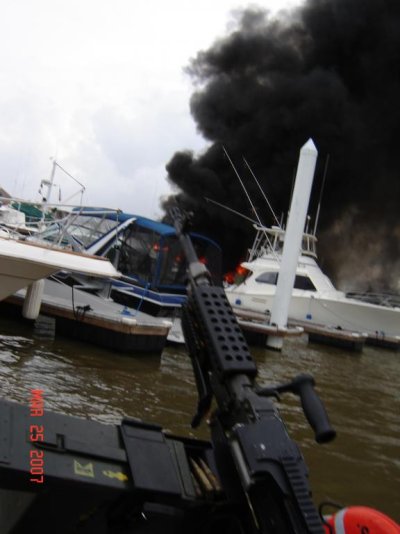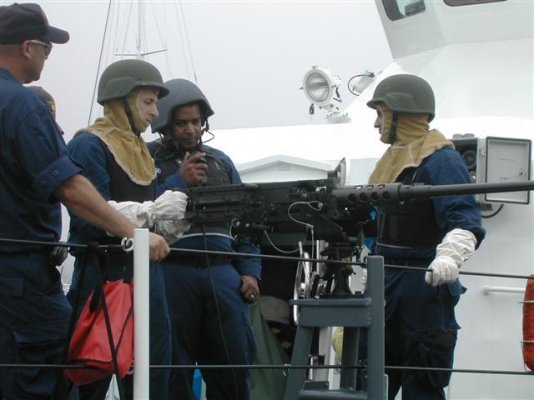marinetrader
Senior Member
- Joined
- Oct 6, 2007
- Messages
- 301
11/07/2007
USAToday reports (you can read the article on my website if you wish) that the Homeland Security Secretary has asked the Coast Guard to develop new requirements for the tracking of small boats. It seems that the Feds are now concerned about small boats carrying lethal quantities of explosives etc. that could be detonated similar to what happened to he Cole in 2000. Funny, 7 years later, the Feds just now get concerned. I wonder who the hell is in charge?
This month the Coast Guard is to provide Chertoff a plan to oversee recreational boats. "We need to know more about who's out there." said Dana Goward, the director of the Coast Guards Maritime Domain Awareness program.
Here we go again. The Feds have no clue who walks across the Mexican border and hasn't made a decent attempt to find out, but you can bet your last dollar they will try to track us boaters. Easy targets.
The Coast Guard wants to require all of us boaters to carry identification so they can build a database of boaters that operate in restricted waters. My name is already on my trawler's documentation papers, and my name is on my dingy registration. I live within 5 miles of a Trident submarine base. I would think I'd already be on that list?
But I bet it will not stop there. Vessels over 100 feet are already required to carry on board transponders to allow them to be tracked. Its my guess that we'll see an attempt to do that with all boats. What a logistical nightmare that would be. And what will we do with the transient boaters that traverse the east coast that must navigate through military bases.
Let's just set up a Federal program for passing through security zones like they do in Customs. Give me a break!!!
We'd better*watch this one closely
MT
USAToday reports (you can read the article on my website if you wish) that the Homeland Security Secretary has asked the Coast Guard to develop new requirements for the tracking of small boats. It seems that the Feds are now concerned about small boats carrying lethal quantities of explosives etc. that could be detonated similar to what happened to he Cole in 2000. Funny, 7 years later, the Feds just now get concerned. I wonder who the hell is in charge?
This month the Coast Guard is to provide Chertoff a plan to oversee recreational boats. "We need to know more about who's out there." said Dana Goward, the director of the Coast Guards Maritime Domain Awareness program.
Here we go again. The Feds have no clue who walks across the Mexican border and hasn't made a decent attempt to find out, but you can bet your last dollar they will try to track us boaters. Easy targets.
The Coast Guard wants to require all of us boaters to carry identification so they can build a database of boaters that operate in restricted waters. My name is already on my trawler's documentation papers, and my name is on my dingy registration. I live within 5 miles of a Trident submarine base. I would think I'd already be on that list?
But I bet it will not stop there. Vessels over 100 feet are already required to carry on board transponders to allow them to be tracked. Its my guess that we'll see an attempt to do that with all boats. What a logistical nightmare that would be. And what will we do with the transient boaters that traverse the east coast that must navigate through military bases.
Let's just set up a Federal program for passing through security zones like they do in Customs. Give me a break!!!
We'd better*watch this one closely
MT


